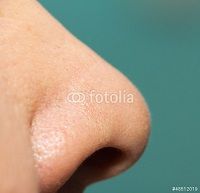Drug Resistance: What Happens Inside the Nose?
A University of Colorado School of Medicine hypothesized that the nasal microbiome could be protective against MRSA colonization in some individuals. Reporting at ID Week 2015 in San Diego, CA, Mary Bessenden, MD and colleges looked at 26 persistently MRSA colonized people and 26 non-colonized controls.

Some people are persistently colonized with methicillin resistant Staph aureus (MRSA) a potent risk factor for infection. No one knows why.
A team of researchers from the University of Colorado School of Medicine hypothesized that the nasal microbiome could be protective against MRSA colonization in some individuals.
Reporting at IDWeek 2015 in San Diego, CA, Mary Bessenden, MD, and colleagues looked at 26 persistently MRSA colonized people and 26 non-colonized controls.
They analyzed subjects’ nasal microbiota with PCR amplification and sequencing of the 16S rRNA gene.
They found a negative association between MRSA colonization and colonization with Strep spp. At the species level, multivariate analysis showed a statistically significant negative association between colonization with Strep mitis or Lactobacillus gasseri and MRSA. They also found a negative association between Kocuria palustris and MRSA colonization of borderline statistical significance. Co-culture experiments revealed in vitro subjects. Competition was blocked by a competition between S mitis and all of the 22 MRSA strains isolated from subjects.
Competition was blocked by addition of catalese to the media. They found that subjects who were persistently colonize had less microbial diversity than non-colonized controls.
The team concluded that in an inpatient setting, interspecies competition among microbes may protect some hosts from MRSA. Further, novel organisms with known mechanisms of anti-staphylococcal activity such as L. gasseri and K. palustris, were shown to be against MRSA in the nose.